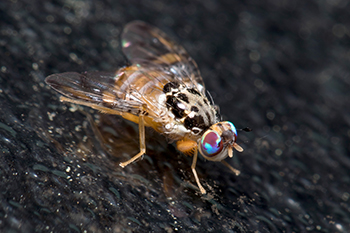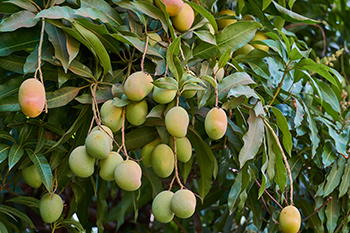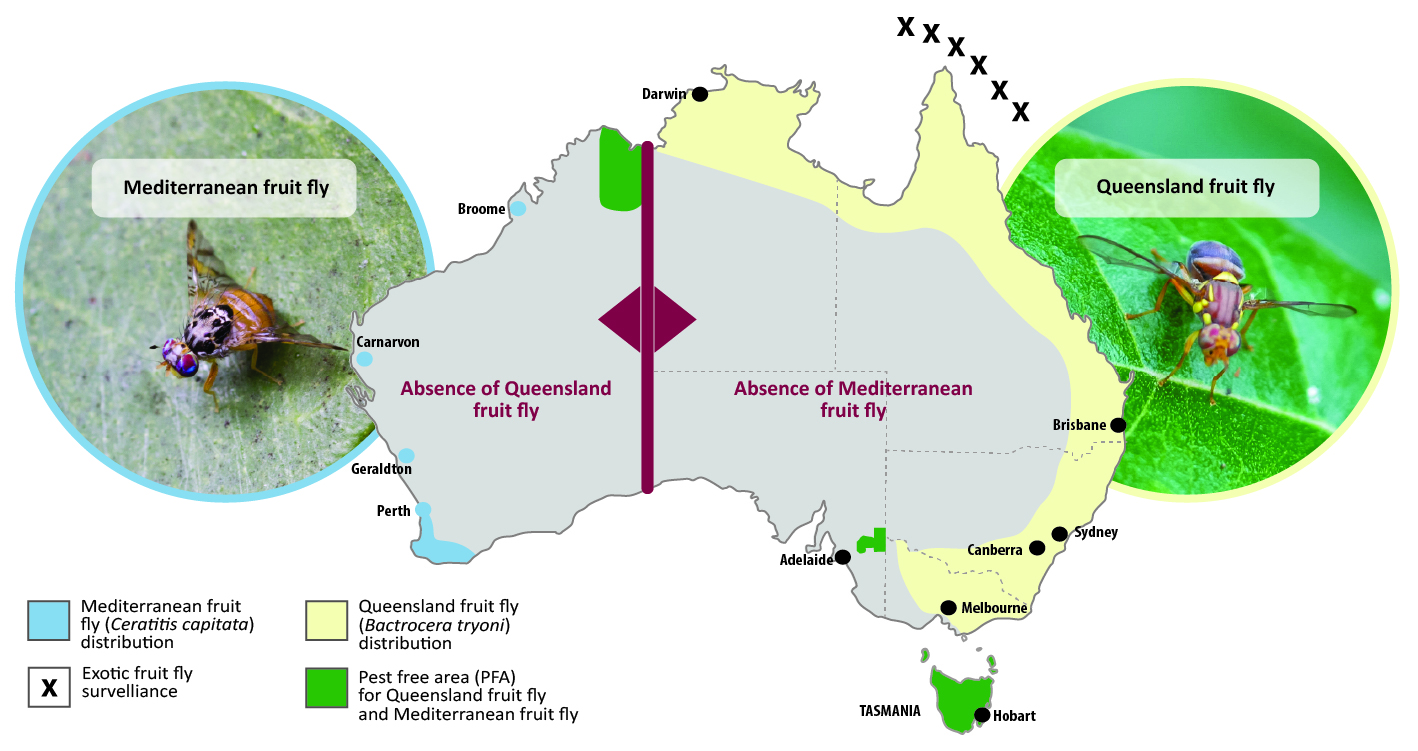Queensland fruit fly (Bactrocera tryoniI 'Qfly') and Mediterranean fruit fly (Ceratitis capitata 'Medfly') are among the world’s worst horticultural pests, affecting a wide range of host plants throughout Australia. The horticultural industry estimates fruit flies cost Australia hundreds of millions of dollars per year in control measures and lost access to international markets.


Challenges to managing a national fruit fly system include changing fruit fly distribution patterns, loss of access to agrichemicals for in-field and post-harvest use, increased demands from trading partners for evidence to support area freedom claims, and fruit fly outbreaks in pest free areas.
The Australian Government through the department is committed to maintaining and strengthening Australia's fruit fly management system and is funding activities under the Smart Fruit Fly Management measure to support this.
Outcomes from research analyses and economic reports inform a broader suite of decisions about the future of national fruit fly management.
Current activities relating to fruit fly economics:
This project is analysing the costs and benefits of maintaining the sterilisation facility and the beneficiaries of the facility.
Context
Qfly is endemic to the eastern states of Australia and the introduced Medfly species is currently established only in Western Australia (WA). The East-West distribution of the two fly species is underpinned by geographic and climatic factors, as well as targeted state and territory government interventions. Additionally, this East-West principle is formally recognised in bilateral trade protocols between Australia and several key trading partners for horticultural exports.
The absence of established populations of Medfly in South Australia (SA) and eastern states provides production and trade benefits, particularly in SA and Tasmania which are also free from Qfly; and in other eastern states where pot-harvest treatments for Qfly are currently less costly than those that are required for Medfly.
Projected outcomes
This project aims to estimate the Australia-wide benefits of eradicating Medfly from WA. It has a two-pronged approach:
- to assess the technical feasibility of eradication and
- whether it’s economically justifiable to do so.
Our partners
The Australian Bureau of Agricultural and Resource Economics and Sciences (ABARES) has been funded to deliver a report on this project.
Project status
- The benefits part of the analysis is complete.
- The project is due to be completed by the end of the 2021 calendar year.
Find out more
Visit The Smart Fruit Fly Management Measure.
For general enquiries, contact fruitflyRDE@aff.gov.au

